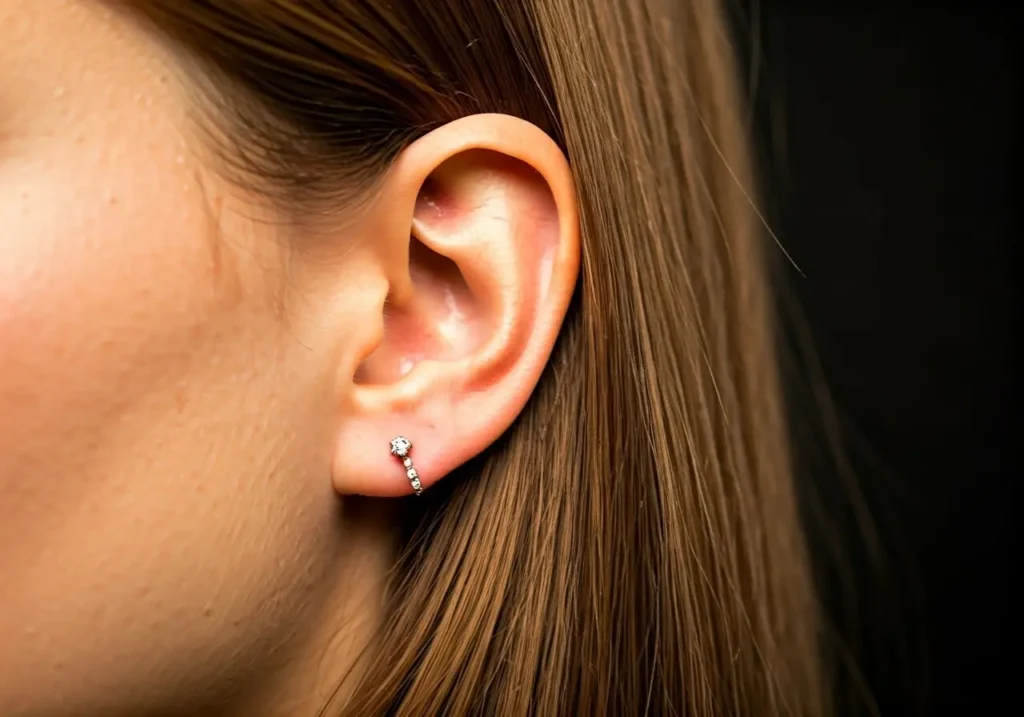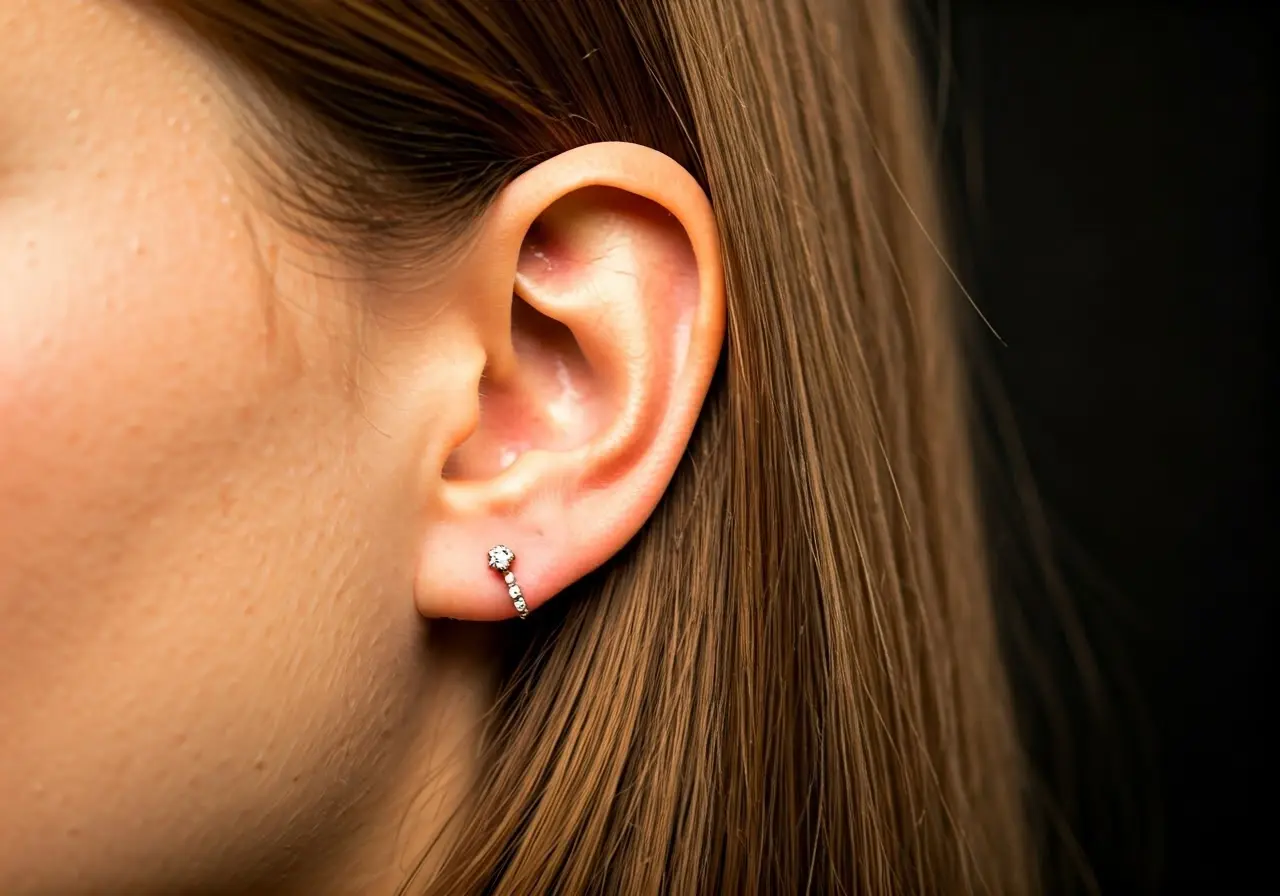Ear piercing is a common practice that spans across different cultures and ages. Many people get their ears pierced for aesthetic reasons, but did you know that it might also have an impact on your wellness? In this blog, we will delve into how ear piercing might contribute to your overall well-being, covering both its potential benefits and risks.
What is Ear Piercing?
Ear piercing involves puncturing the earlobe or other parts of the ear to insert an earring or other piece of jewelry. It’s a simple and quite common procedure that has been practiced for centuries.
The process has evolved significantly, with modern techniques making it safer and more hygienic than ever before. Whether performed with a needle or a piercing gun, the basic idea is the same: create a small hole in the ear to accommodate a piece of jewelry.
Different parts of the ear can be pierced, including the lobe, cartilage, and even areas like the tragus. Each type of piercing has its own characteristics, healing times, and care requirements.
Cultural and Historical Significance
Ear piercing has been a part of human cultures for millennia. Many cultures consider it a rite of passage or a symbol of status and identity. Understanding the cultural background can add depth to its significance.
In ancient India, ear piercing, known as Karna Vedha, is one of the 16 sacraments marking the various stages of human life The science behind ear piercing and other traditional beliefs. It’s deeply rooted in cultural heritage and believed to possess several health benefits.
For indigenous tribes and ancient civilizations, ear piercing was more than just an aesthetic choice; it was deeply symbolic. From rites of passage in African tribes to the decorative gauges in ancient South American cultures, ear piercing has always signified more than meets the eye.
Potential Health Benefits
Some believe that piercing certain parts of the ear can have health benefits. For instance, specific points on the ear are thought to correspond to acupuncture points, which may help relieve pain and improve well-being.
Various acupuncture points located on the ear are associated with different parts of the body. According to the principles of auriculotherapy, stimulation of these points through ear piercing can alleviate issues like anxiety, insomnia, and even digestive problems.
Health benefits of ear piercings range from improved reproductive health to better brain function. As per Ayurveda, the meridian points in the ears connect to vital organs, stimulating these points through piercing can enhance overall health.
Possible Risks and Complications
While ear piercing is generally safe, it does come with potential risks such as infections, allergic reactions, and scarring. It’s important to be aware of these risks and to take proper care of your piercings.
Infections are a primary concern. They can occur if the piercing is done in an unsanitary environment or if proper aftercare is not followed. Early signs of infection include redness, swelling, and discharge from the piercing site. According to WebMD, maintaining cleanliness is crucial to avoid these complications.
Another potential issue is an allergic reaction to the metal in the earrings. Common allergens include nickel and cobalt. To minimize this risk, it’s advisable to use hypoallergenic materials like surgical steel, titanium, or 14-karat gold for your initial ear jewelry.
Scarring and keloid formation are other complications that can arise from ear piercings. People with a history of keloids should exercise caution. Always consult a healthcare professional if you’re unsure about the risks involved.
How to Care for Pierced Ears
Proper aftercare is crucial to prevent complications. Learn how to clean and protect your new piercings to ensure they heal properly and minimize risks.
Cleaning your piercing twice a day with a saline solution is recommended. Avoid using alcohol or hydrogen peroxide, as these can dry out the skin and prolong the healing process. Instead, opt for a gentle, non-alcoholic cleanser.
Avoid touching your new piercings with unwashed hands. Germs from your fingers can easily transfer to the piercing site and cause infections. According to WebMD, it’s crucial to keep your hands clean and avoid unnecessary contact with the newly pierced area.
Rotating your earrings every now and then can prevent the skin from adhering to the jewelry and promote faster healing. However, be gentle to avoid irritation or injury to the piercing site.
For those experiencing prolonged healing times or signs of infection, it is advisable to consult a healthcare professional. Early intervention can prevent potential complications, ensuring that your piercing journey remains safe and positive.
Conclusion
Understanding the wellness implications of ear piercing can help you make an informed choice. Whether for cultural reasons, aesthetic preferences, or potential health benefits, knowing what to expect and how to care for your piercings is essential.
If you’re considering getting your ears pierced and want to do it safely, consider enrolling in an Ear Piercing Course Online. At the Centre of Wellness, we offer comprehensive training that covers everything from site location to aftercare. Visit our homepage for more information or to sign up for a course.
Final Thoughts
Ear piercing is more than just a fashion statement. It has deep cultural roots and potential wellness benefits, although it comes with some risks. By understanding the implications of ear piercing on wellness, you can make an informed decision whether or not to get your ears pierced.


